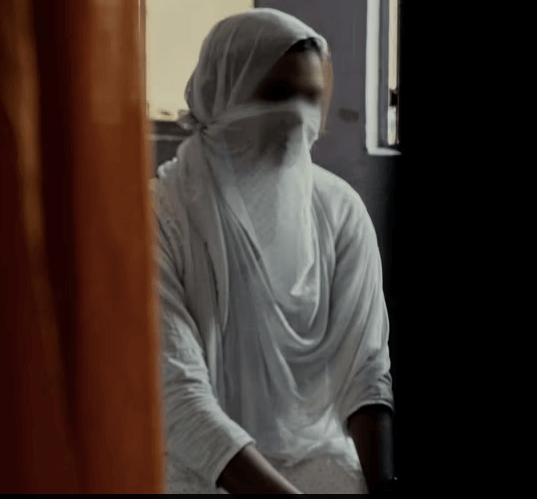Updated: July 2023
Whether it’s spoken about in newspapers, social media or even cafés, child sex trafficking is becoming an increasingly hot topic across the world.
But in the age of the internet—where people are constantly neck deep in information—the line between truth and fiction about issues can blur. For child sex trafficking, it’s important to know the truth to protect and educate others correctly and—ultimately—end the trade.
To help set the record straight, Destiny Rescue has drawn on over 20 years of experience to explain the general reality of child sex trafficking in Southeast Asia. We’re addressing some common myths that are believed about trafficking that we’ve found to be false in many regions of the world where we work.
Myth 1: Traffickers are all black-coated male criminals
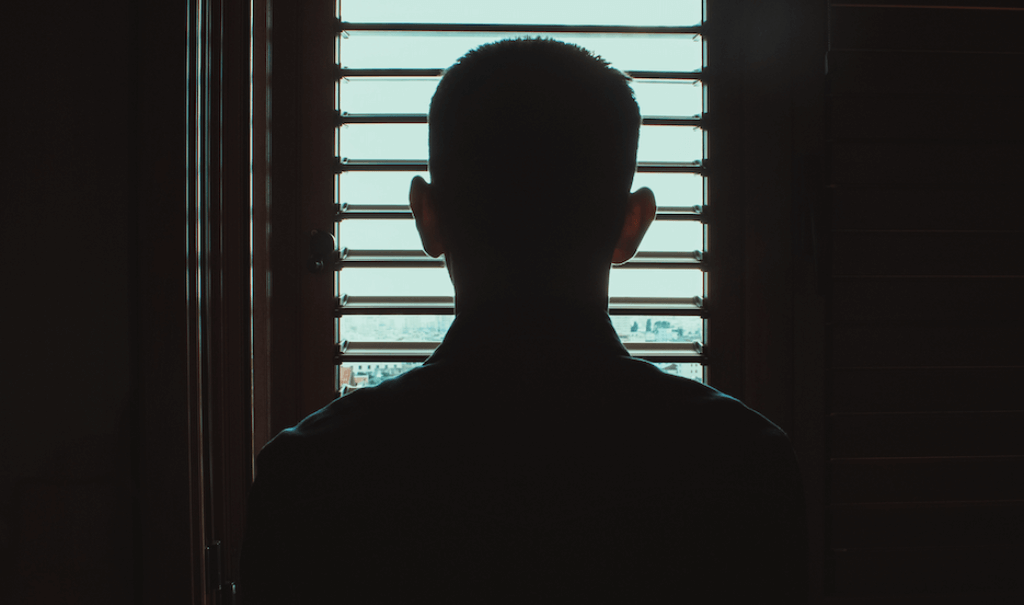
Image is representational
70%
FEMALE TRAFFICKERS
Crumbling up the idea of traffickers being an underground gang of men selling children, Destiny Rescue International Rescue Director Joel says many traffickers are women.
In Cambodia and Thailand, nearly 70% of traffickers were women, according to a report in 2014 by the United Nations Office on Drugs and Crime.
Women comprised 24.4% of traffickers in the U.S.; of those female traffickers arrested, 53.4% had been previous trafficking victims, according to a 2019 report from the Arizona State University Office of Sex Trafficking Intervention Research.
We’ve found the same pattern to be true in our work across the globe.
Female traffickers, Joel says, are cunning hunters who wield their femininity to build trust with parents and gain access to their children. The women scout poor villages and pretend to be career recruiters offering girls jobs in a nearby city.
The women, who are often former victims themselves, slowly wean off the girl’s contact with her parents after she is taken to a city and forced to have sex with men.
“They exploit these kids, knowing full well what it is like,” Joel said.
In addition to women, Joel says a handful of poverty-stricken parents can also become traffickers out of desperation.
A quarter of children trafficked for sex were sold by a family member, according to the global anti-trafficking agency Counter Data Trafficking Collaborative.
Joel says these poor parents in Southeast Asia will “sacrifice” one of their children to work to help feed the family or pay a debt.
Families can become financially dependent on the money their daughter can send home. With this newfound security, many parents pretend not to know what their child does for work to dodge feeling guilty.
“Deep down, they know their kid is being trafficked,” Joel said.
Myth 2: Trafficking victims are kidnapped in the dark of night

Image is representational
Unlike blockbuster movies where children are kidnapped and thrown into the sex industry, most children in Southeast Asia are tricked or led by necessity.
These kids, Joel says, often have only two options for work—farming or selling themselves—because they lack education, work experience and sometimes even citizenship.
Alternatively, a single mother might seek work in the sex industry so she can care for her child during the day and earn an income at night.
“Ninety-nine percent of the girls never want to be in this situation,” Joel said.
Girls are often tricked too. Some traffickers lure girls to them by pretending to fall in love with them on social media and convincing them to leave their home country.

Guys just troll the internet for vulnerable kids,” Joel said.
Other traffickers blatantly promote a “mysterious” high-paying job on social media. They leave out critical details about the job description, but to a trained eye, “you can read between the lines.” Naive girls, on the other hand, could miss the signs.
Taking advantage of a vulnerable girl is a profitable business model for traffickers. They see it as an easy way to make a dollar in one of the most lucrative illegal trades in the world.
The global commercial sex trafficking industry earns approximately $99 billion a year, according to a report in 2014 by the global labor rights agency International Labour Organization.
And while sex trafficking victims only made up a fifth of all human trafficking victims, they made the most money for the industry—two-thirds of its annual profit. Most of this money was coming out of the Asia-Pacific region, too.
In other words, most of the industry’s income came from one small group of trafficking victims from one region.
Myth 3: Children are only sold for sex in the shadows
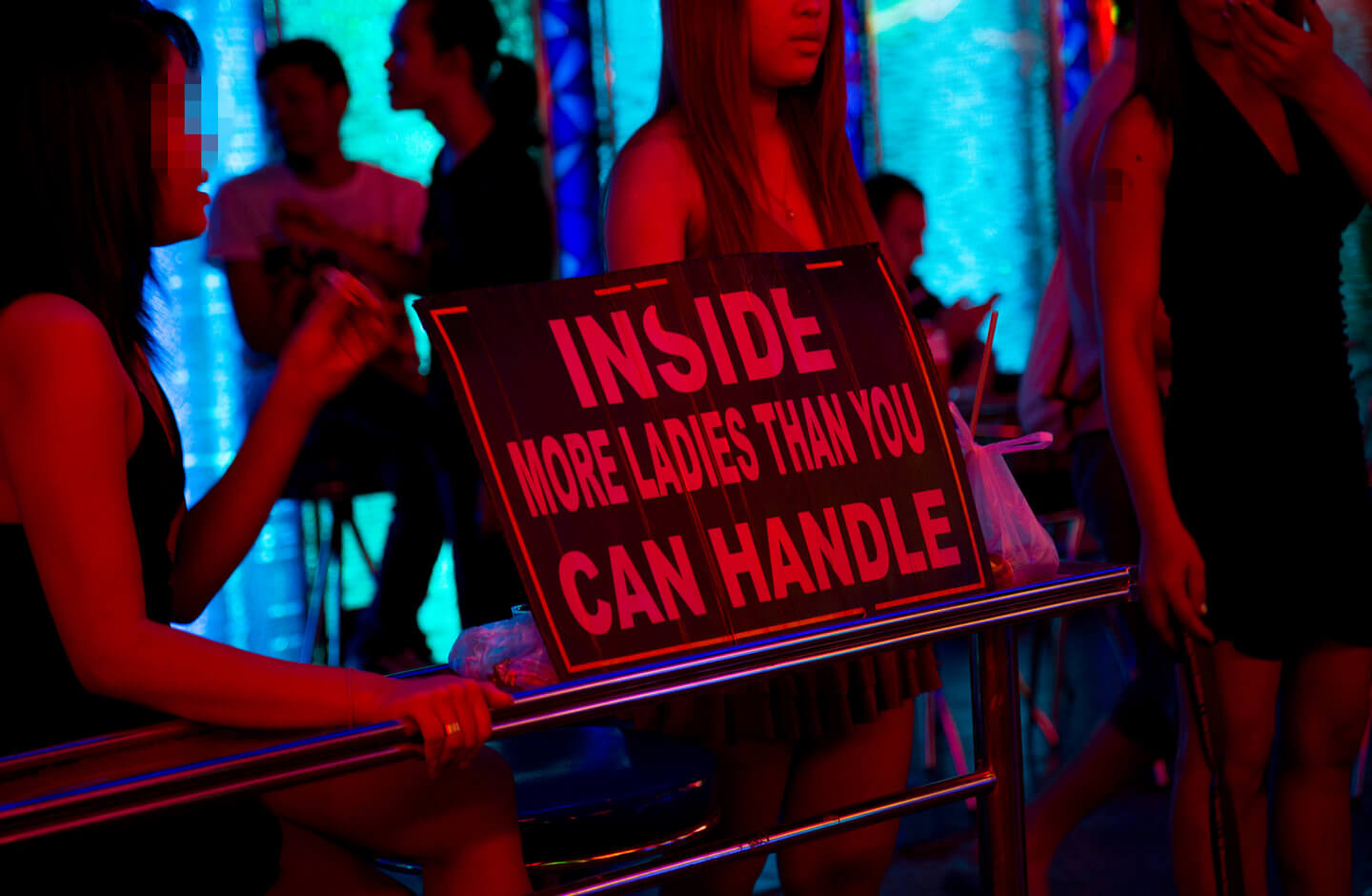
In many red-light districts across Asia, people are “advertised” and offered to sex buyers in the open
85%
OF VICTIMS
ARE IN THE ASIA-PACIFIC
Another part of that myth is that sex work, including brutal child trafficking, is all conducted in the shadows. Instead, despite their deplorable trade, traffickers in many locations work out in the open.
Joel says most child sex trafficking victims work in karaoke bars, massage parlors, brothels or on the street.
Street pimps, often women known as “mama-sans,” typically hold a tablet showcasing pictures and personal details of their sex workers, similar to a dinner menu at a restaurant.
“As a client, you will pick a girl and location, and the pimp will send them to you,” Joel said.
Joel also says these girls are being sold online to pleasure customers through a live stream video where customers pay them to perform sexual acts.
Most traffickers are also not flying, boating or driving their victims long distances to sell them in one of these locations. Instead, most victims stay in or near their home country.
More than 85% of human trafficking victims, which includes people sold for labor, were sold within the Asia-Pacific region, according to a report in 2016 by the United Nations Office on Drugs and Crime.
Myth 4: Without a physical threat, kids can escape their traffickers
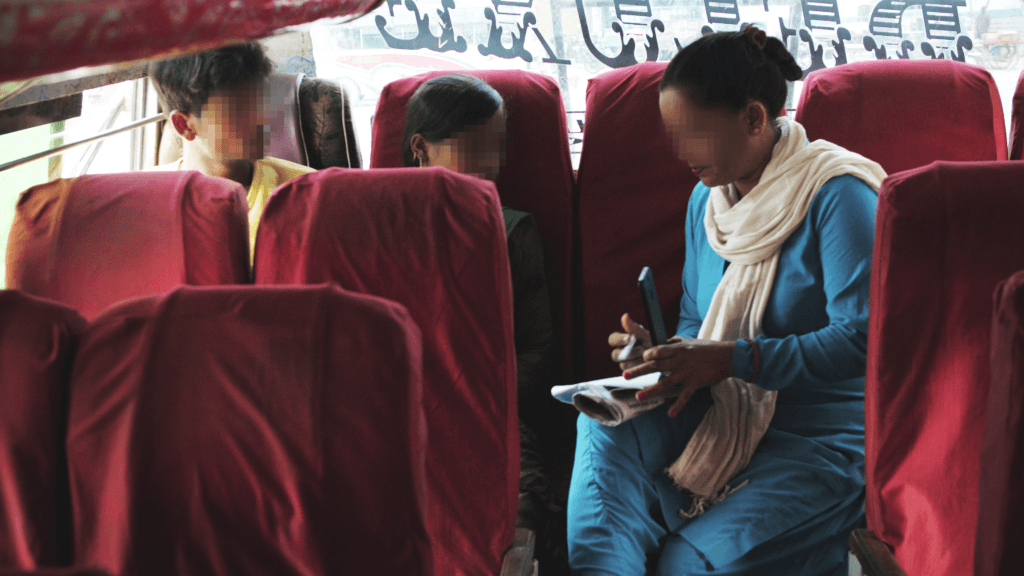
A border agent in Nepal questions a young couple on a bus. If trafficking is suspected, agents in Nepal then separate and question individuals separately
Child sex trafficking victims cannot simply leave the industry. Joel says a shame-honor culture, death threats and the appeal of a luxury lifestyle can stop them.
A “shame-honor culture” is a term to describe a culture where people feel they do not represent only themselves but rather their group identities, such as their family or community. If a person violates their group identity’s expectations, they can humiliate everyone in the group.
Considering this culture, child sex trafficking victims can be too afraid to return home because they could cast shame upon their family or community, occasionally facing harsh consequences.
“[In severe cases] a girl… returns to the village and is violently beaten, torched or even set on fire because she brought shame onto the family,” Joel said.
Many girls also cannot leave their workplace without facing harsh blackmail, such as death threats. Or, disturbingly, some traffickers will take a paparazzi-like photo of a girl’s innocent sister to show her they can also find and kill her sister.
“They instill this fear into this girl that basically has no option but to work,” Joel said.
Additionally, these girls, who many times see no joy or hope in or outside the walls of the brothel, often stay in the trade because they can at least find glimpses of pleasure by affording materialistic items.
Joel says they buy cars, expensive phones and clothes, creating a lavish lifestyle that they become addicted to, especially after being raised in a poor village.
“These are things they have never dreamt of having,” Joel said.
Myth 5: Some girls like the work
Contrary to a girl’s warm façade at a brothel, Joel says they do not want to be there and are good at masking their emotions.
Some girls have “sales targets” where they must sleep with a certain number of men each month, or their pimp will beat them or deduct money from their wages.
“They have to get into role playing of making these men want to have sex with them,” Joel said. “When he goes to the toilet, you’ll just see her whole demeanor change … then he will come back, and she will, at the flick of a switch, turn it all back on.”
These girls are also not protected by their pimps when they are with a customer.
Pimps turn a blind eye to their girl’s sexual interactions with customers, leaving the child at the mercy of a customer behind closed doors.
“Whatever he’s into, she has to participate in,” Joel said. “Guys are fulfilling fantasies from porn.”
The light
Considering all factors that play a role in child sex trafficking, Joel says, “There’s no rule to how people are trafficked. There is no black-and-white answer to everything.”
But they typically have one thing in common: “Wherever you have desperation and poverty, you have exploitation,” Joel said.
But despite this—and the mountain of other burdens listed earlier—child sex trafficking victims are surprisingly resilient, Joel says.
Girls who have been rescued often make giant steps toward recovery alongside our reintegration teams on their path toward freedom.
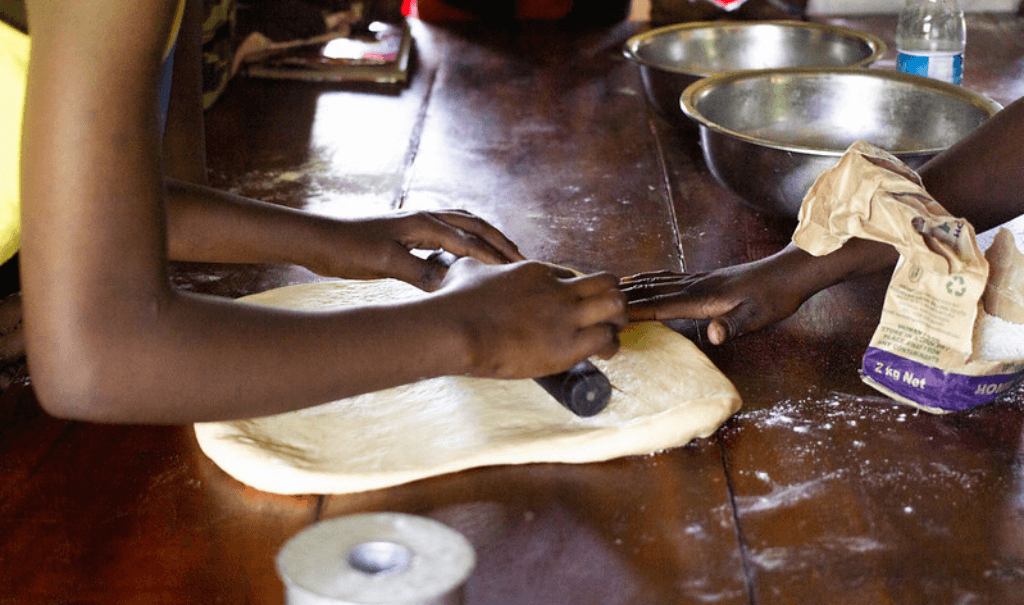
Survivors in Uganda practice catering skills during vocational training
Learn more about vocational training in Uganda
Most of them finish our program and enter bright futures with opportunities for sustainable freedom, such as returning home, gaining new skills and higher education, landing a safe job or starting their own business.
Destiny Rescue is relentlessly rescuing girls and helping them move toward freedom. Whether it’s raiding a brothel, intercepting a potential victim at the border or offering the hope of a better life to a girl in a bar, our work remains laser-focused on rescuing children from exploitation. You can set the next child free; become a Rescue Partner and begin giving monthly toward this fight today.
Our staff member’s name has been changed to protect his identity.
Investing with Integrity
Over the last three years, 80.4% of every dollar we spent was used for programs that benefit the children we defend.
Destiny Rescue is recognized by Guidestar, Charity Navigator and the Better Business Bureau for our commitment to transparency, accountability and financial integrity.
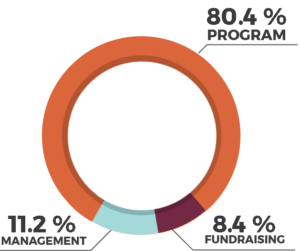


 Australia
Australia New Zealand
New Zealand United Kingdom
United Kingdom